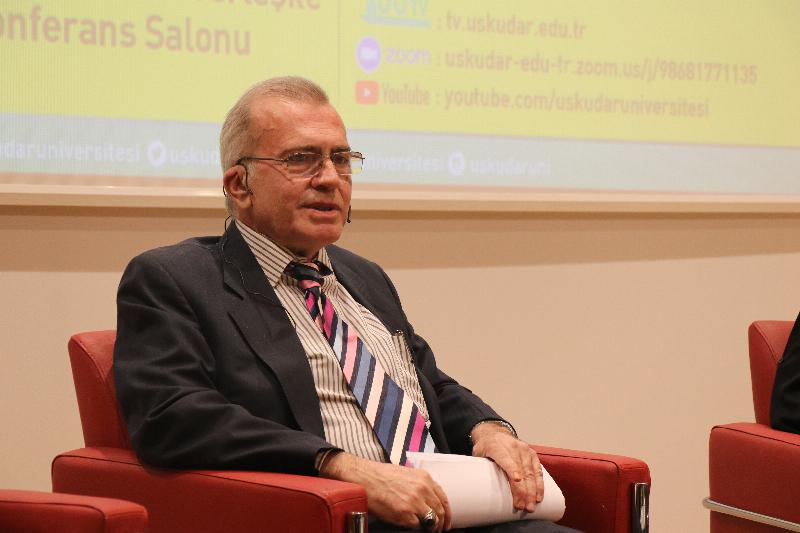The flood prolonged the trauma process!
Stating that societies experience four phases as heroism, honeymoon, disappointment and normalization, experts emphasized the importance of social support and psychological first aid especially in the prevention of suicide cases. Experts stayed that the phenomenon called collective empathy or social empathy have emerged during the last earthquake and experts said that it shows that people from all over the country who have no personal experience with the event in the earthquake which devasted our country step in to help. While it is highlighted that the flood disaster prolonged the trauma process, it is also stated that we are in the disappointment phase from the trauma stages.
Now we are in the stage of disappointment...
Üsküdar University Faculty of Humanities and Social Sciences Department of Psychology Asst. Prof. Mert Akcanbaş stated that there are stages experienced after traumas and made his remarks on these stages.
There are 4 post-traumatic stages
Stating that post-traumatic societies experience four phases, Dr. Mert Akcanbaş listed them as heroism, honeymoon, disappointment and normalization. Stating that the heroic phase is experienced from 2 hours to 3 days, Dr. Mert Akcanbaş noted that the honeymoon phase is the period from 3 days to 3 weeks.
After the earthquake, a disappointment phase is now being experienced
Stating that the disappointment phase continues between 3 weeks and 3 months, Dr. Mert Akcanbaş stated that normalization phase is between 3 months and 36 months and said, "The people in the disaster area are currently in a disappointment phase where search and rescue activities have stopped, aid activities have decreased, and the media's interest in what is happening in the region has decreased.".
Beware of the 2-year period in case of suicides!
Stating that there are changes in suicides seen in society after major traumas, Dr. Mert Akcanbaş said, "According to studies conducted in different disaster regions of the world, suicide rates in heroism and honeymoon periods decrease even among people who think about suicide before the disaster, an increase for 2 years from the disappointment phase and then return to normal. However, even after 5 years after this normalization, suicide rates are increasing among disaster victims.".
Psychological first aid should be applied
Dr. Mert Akcanbaş said that to keep this situation under control, psychological first aid should be applied to those who are affected by the disaster within 30 days, that is, when the stress is in the acute period. Moreover, all stressors in their lives such as shelter, food, work, financial issues, etc. should be reduced by cooperation.
Trauma victims differ
Dr. Mert Akcanbaş noted that the DSM V (5th version), which is the most important reference book of psychology and psychiatry, gives a place to the victims in the first article called Condition A, and said that according to this condition, the victims differ as the following:
i. Those who have experienced the trauma themselves
ii. Those who witnessed the traumatic event happen to others
iii. Those who have learned that a loved one or family member has experienced trauma
iv. Those who have experienced unpleasing details of the traumatic event at a repetitive or excessive level (search and rescuers, emergency team members, firefighters, journalists, etc.)
Distance did not matter in trauma
Dr. Mert Akcanbaş stated that DSM V noted that "the diagnostic criterion cannot be applied" to the people in the last category, and said, "However, we have all seen that people who are far from the region and have no relatives in the region, watch the rescue efforts on television and social media until the morning of the latest disaster, and that these people experience many traumatic symptoms in their daily lives. As a result, in the future versions of the DSM system, where traumatic stress and related disorders have been evaluated in different disease categories since 1954 and conditions of which have been constantly revised, it must be included those who constantly watch real events through channels such as media and television should be included in the scope of victims in my opinion."
Collective empathy is high in our country
Referring to the concept of collective empathy that emerges in society during the disasters affecting a wide geography, Dr. Mert Akcanbaş said, "The phenomenon we can call collective empathy or social empathy means that personal empathy has an effect on a wider area, that is, to understand others and distant social groups as if experiencing what they are going through and sharing their feelings. As a matter of fact, I think we saw this in the last disaster, as well. I think, it shows that people from all over the country who have no personal experience with the incident step in to help the people of the region and that different institutions such as municipalities use their resources to reduce the pain and needs of the region even though it is not among their duties. This indicates that collective empathy is high in our country.".
The Floods have prolonged the trauma process
Stating that it is very painful that the flood disaster has been experienced before the negative effects of different earthquakes experienced in the same geographical region have been overcome, Dr. Mert Akcanbaş said, "One of the main factors that increase the symptoms of traumatic stress is the number and duration of the traumatic experience. The fact that the people who survived the earthquake faced the risk of death again increased the number of traumas and prolonged the process.".
Üsküdar News Agency (ÜNA)
